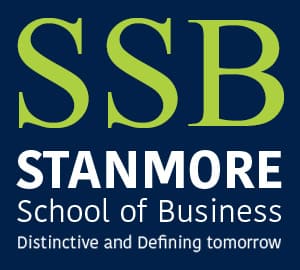Course details
Loading...
Generating course details...
• Understanding Entrepreneurial Mindset and Skills: This unit focuses on developing the essential skills and mindset required for entrepreneurship, including creativity, risk-taking, and problem-solving.
• Business Planning and Strategy: Students learn how to create a comprehensive business plan, including market research, financial projections, and marketing strategies.
• Innovation and Design Thinking: This unit introduces students to design thinking principles and encourages them to develop innovative solutions to real-world problems.
• Leadership and Team Management: Students learn how to lead and manage teams, including communication, delegation, and conflict resolution skills.
• Marketing and Sales: This unit covers the principles of marketing and sales, including branding, advertising, and customer relationship management.
• Financial Management and Accounting: Students learn how to manage finances, including budgeting, forecasting, and financial reporting.
• Entrepreneurial Law and Ethics: This unit covers the legal and ethical aspects of entrepreneurship, including intellectual property, contracts, and corporate governance.
• Digital Marketing and E-commerce: Students learn how to use digital marketing tools and platforms to promote their business and sell products online.
• Pitching and Presenting: This unit focuses on developing the skills required to pitch and present business ideas to investors, customers, and stakeholders.
• Launching and Growing a Business: Students learn how to launch and grow a business, including market entry strategies, product development, and scaling.
• Entrepreneurship in the UK: This unit provides an overview of the UK entrepreneurship ecosystem, including funding options, support services, and industry trends.
• Advanced Diploma in Foundation Enterprise and Entrepreneurship: This unit provides an overview of the Advanced Diploma program, including its structure, assessment, and career outcomes.
• Career Development and Entrepreneurial Opportunities: Students learn how to develop their career and explore entrepreneurial opportunities, including networking, mentorship, and job search strategies.
• Entrepreneurial Mindset and Skills Development: This unit focuses on developing the entrepreneurial mindset and skills required for success in business and beyond.
• Business Model Innovation and Disruption: Students learn how to develop and disrupt business models, including lean startup principles and design thinking.
• Social Entrepreneurship and Impact: This unit covers the principles of social entrepreneurship and impact, including social enterprise models, impact measurement, and social responsibility.
• Entrepreneurial Finance and Funding: This unit covers the financial aspects of entrepreneurship, including funding options, venture capital, and angel investors.
• Entrepreneurial Leadership and Management: Students learn how to lead and manage entrepreneurial ventures, including leadership styles, team management, and organizational design.
• Entrepreneurial Marketing and Sales: This unit covers the marketing and sales aspects of entrepreneurship, including branding, advertising, and customer relationship management.
• Entrepreneurial Innovation and Technology: Students learn how to develop and commercialize innovative products and services, including technology transfer, intellectual property, and product development.
• Entrepreneurial Sustainability and Environmental Impact: This unit covers the principles of sustainable entrepreneurship and environmental impact, including sustainable business models, green technologies, and environmental responsibility.
• Entrepreneurial Globalization and International Trade: Students learn how to develop and expand entrepreneurial ventures globally, including international trade, market entry strategies, and cultural competence.
• Entrepreneurial Risk Management and Mitigation: This unit covers the risk management and mitigation aspects of entrepreneurship, including risk assessment, risk management strategies, and insurance.
• Entrepreneurial Ethics and Corporate Social Responsibility: This unit covers the ethical and social responsibility aspects of entrepreneurship, including corporate social responsibility, ethics, and governance.
• Entrepreneurial Human Resources and Talent Management: Students learn how to manage human resources and talent in entrepreneurial ventures, including recruitment, talent development, and employee engagement.
• Entrepreneurial Operations and Supply Chain Management: This unit covers the operational and supply chain aspects of entrepreneurship, including supply chain management, logistics, and operations management.
• Entrepreneurial Technology and Digital Transformation: Students learn how to develop and implement digital transformation strategies, including digital marketing, e-commerce, and technology adoption.
• Entrepreneurial Innovation and Entrepreneurial Ecosystems: This unit covers the innovation and entrepreneurial ecosystems aspects of entrepreneurship, including innovation ecosystems, entrepreneurial networks, and incubators.
• Entrepreneurial Policy and Regulation: This unit covers the policy and regulatory aspects of entrepreneurship, including policy frameworks, regulatory environments, and government support.
• Entrepreneurial Research and Development: Students learn how to conduct research and development in entrepreneurial ventures, including research methods, innovation, and product development.
• Entrepreneurial Intellectual Property and Patent Law: This unit covers the intellectual property and patent law aspects of entrepreneurship, including intellectual property rights, patent law, and licensing.
• Entrepreneurial Taxation and Financial Planning: This unit covers the taxation and financial planning aspects of entrepreneurship, including tax planning, financial planning, and wealth management.
• Entrepreneurial Succession Planning and Exit Strategies: Students learn how to develop succession plans and exit strategies for entrepreneurial ventures, including succession planning, exit strategies, and business transfer.
• Entrepreneurial Governance and Corporate Governance: This unit covers the governance and corporate governance aspects of entrepreneurship, including corporate governance, board governance, and governance structures.
• Entrepreneurial Risk and Opportunity Management: Students learn how to manage risk and opportunity in entrepreneurial ventures, including risk assessment, risk management strategies, and opportunity identification.
• Entrepreneurial Innovation and Entrepreneurial Ecosystems Development: This unit covers the innovation and entrepreneurial ecosystems development aspects of entrepreneurship, including innovation ecosystems, entrepreneurial networks, and incubators.
• Entrepreneurial Policy and Regulation Development: This unit covers the policy and regulatory development aspects of entrepreneurship, including policy frameworks, regulatory environments, and government support.
• Entrepreneurial Research and Development Funding: Students learn how to secure funding for research and development in entrepreneurial ventures, including research funding, innovation funding, and grants.
• Entrepreneurial Intellectual Property and Patent Law Protection: This unit covers the intellectual property and patent law protection aspects of entrepreneurship, including intellectual property rights, patent law, and licensing.
• Entrepreneurial Taxation and Financial Planning Strategies: This unit covers the taxation and financial planning strategies aspects of entrepreneurship, including tax planning, financial planning, and wealth management.
• Entrepreneurial Succession Planning and Exit Strategies Development: Students learn how to develop succession plans and exit strategies for entrepreneurial ventures, including succession planning, exit strategies, and business transfer.
• Entrepreneurial Governance and Corporate Governance Development: This unit covers the governance and corporate governance development aspects of entrepreneurship, including corporate governance, board governance, and governance structures.
• Entrepreneurial Risk and Opportunity Management Strategies: Students learn how to develop risk and opportunity management strategies for entrepreneurial ventures, including risk assessment, risk management strategies, and opportunity identification.
• Entrepreneurial Innovation and Entrepreneurial Ecosystems Development Strategies: This unit covers the innovation and entrepreneurial ecosystems development strategies aspects of entrepreneurship, including innovation ecosystems, entrepreneurial networks, and incubators.
• Entrepreneurial Policy and Regulation Development Strategies: This unit covers the policy and regulatory development strategies aspects of entrepreneurship, including policy frameworks, regulatory environments, and government support.
• Entrepreneurial Research and Development Funding Strategies: Students learn how to secure funding for research and development in entrepreneurial ventures, including research funding, innovation funding, and grants.
• Entrepreneurial Intellectual Property and Patent Law Protection Strategies: This unit covers the intellectual property and patent law protection strategies aspects of entrepreneurship, including intellectual property rights, patent law, and licensing.
• Entrepreneurial Taxation and Financial Planning Strategies Development: This unit covers the taxation and financial planning strategies development aspects of entrepreneurship, including tax planning, financial planning, and wealth management.
• Entrepreneurial Succession Planning and Exit Strategies Development Strategies: Students learn how to develop succession plans and exit strategies for entrepreneurial ventures, including succession planning, exit strategies, and business transfer.
• Entrepreneurial Governance and Corporate Governance Development Strategies: This unit covers the governance and corporate governance development strategies aspects of entrepreneurship, including corporate governance, board governance, and governance structures.
• Entrepreneurial Risk and Opportunity Management Strategies Development: Students learn how to develop risk and opportunity management strategies for entrepreneurial ventures, including risk assessment, risk management strategies, and opportunity identification.
• Entrepreneurial Innovation and Entrepreneurial Ecosystems Development Strategies Development: This unit covers the innovation and entrepreneurial ecosystems development strategies development aspects of entrepreneurship, including innovation ecosystems, entrepreneurial networks, and incubators.
• Entrepreneurial Policy and Regulation Development Strategies Development: This unit covers the policy and regulatory development strategies development aspects of entrepreneurship, including policy frameworks, regulatory environments, and government support.
• Entrepreneurial Research and Development Funding Strategies Development: Students learn how to secure funding for research and development in entrepreneurial ventures, including research funding, innovation funding, and grants.
• Entrepreneurial Intellectual Property and Patent Law Protection Strategies Development: This unit covers the intellectual property and patent law protection strategies development aspects of entrepreneurship, including intellectual property rights, patent law, and licensing.
• Entrepreneurial Taxation and Financial Planning Strategies Development Development: This unit covers the taxation and financial planning strategies development development aspects of entrepreneurship, including tax planning, financial planning, and wealth management.
• Entrepreneurial Succession Planning and Exit Strategies Development Strategies Development: Students learn how to develop succession plans and exit strategies for entrepreneurial ventures, including succession planning, exit strategies, and business transfer.
• Entrepreneurial Governance and Corporate Governance Development Strategies Development: This unit covers the governance and corporate governance development strategies development aspects of entrepreneurship, including corporate governance, board governance, and governance structures.
• Entrepreneurial Risk and Opportunity Management Strategies Development Development: Students learn how to develop risk and opportunity management strategies for entrepreneurial ventures, including risk assessment, risk management strategies, and opportunity identification.
• Entrepreneurial Innovation and Entrepreneurial Ecosystems Development Strategies Development Development: This unit covers the innovation and entrepreneurial ecosystems development strategies development development aspects of entrepreneurship, including innovation ecosystems, entrepreneurial networks, and incubators.
• Entrepreneurial Policy and Regulation Development Strategies Development Development: This unit covers the policy and regulatory development strategies development development aspects of entrepreneurship, including policy frameworks, regulatory environments, and government support.
• Entrepreneurial Research and Development Funding Strategies Development Development: Students learn how to secure funding for research and development in entrepreneurial ventures, including research funding, innovation funding, and grants.
• Entrepreneurial Intellectual Property and Patent Law Protection Strategies Development Development: This unit covers the intellectual property and patent law protection strategies development development aspects of entrepreneurship, including intellectual property rights, patent law, and licensing.
• Entrepreneurial

